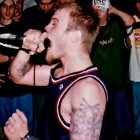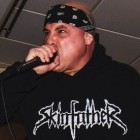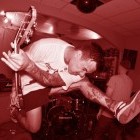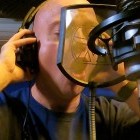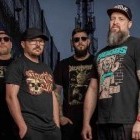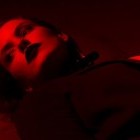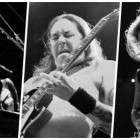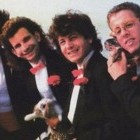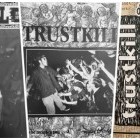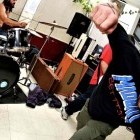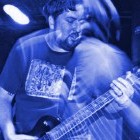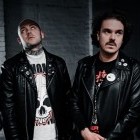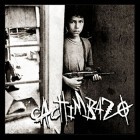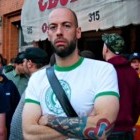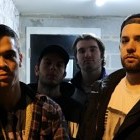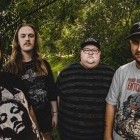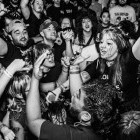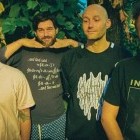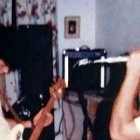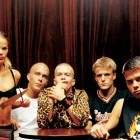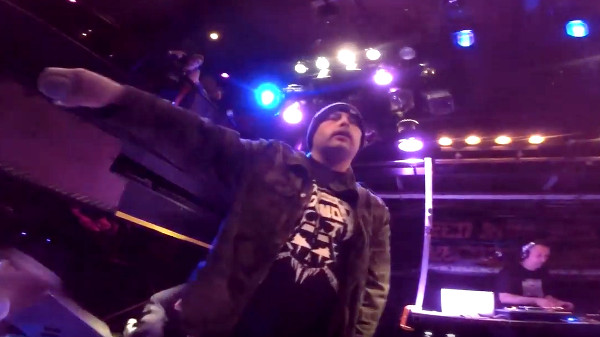
I first met Mitch Manzanilla back in 1994 through Bill Braunstein. At the time, Bill was trying to get his rap career off the ground, and I was interning at Roadrunner Records. A few years later, Bill (Ill Bill) and Mitch (Goretex) were both in Non Phixion, a rap group that at one point also featured former 3rd Bass member MC Serch. Non Phixion went on to release a grip of underground hit singles and one studio album in the late '90s. As a solo artist, Goretex has issued one 12" ("Hated" b/w "New America") and two studio albums, The Art of Dying (2004) and Electric Lucifer (2013).
Gore (sometimes billed as "Gore Elohim") is a true music junkie who can wax about obscure '80s hip-hop one moment, and then turn around and tell you why he thinks Deathrow's Deception Ignored album should be heralded as a technical thrash metal classic. This is why I've been friends with the guy for all these years.
With Non Phixion back in business after a long hiatus, I decided it was time to chat with Gore about his life and career in underground music.
Tell me about your upbringing. I know you grew up both in Brooklyn and Long Island.
Yeah, that's true. I was born in Long Beach—well, more Island Park—on Traymore Blvd. I moved to Long Beach right after that, kinda, both east and west end. My dad split when I was around 2. I don't have any brothers or sisters. It was far out growing up in Long Beach. I wasn't seeing people getting stabbed and jumped into unconsciousness yet.
This was the late '70s, so there were probably a lot of characters around.
Yeah, there were a lot of hippies and cretins around back then. I remember taking the bus up Beech Street one day. I was sitting there and this dude looked like the singer from The Exploited, [Wattie] or whoever, sitting across from me. He had the pins, leather jacket with paint on it, boots and a mohawk, not the safe shit. He was intimidating. I was like 8 and probably wearing a ratty KISS or Scorpions t-shirt. He asked me, "Why are you wearing that shirt?" I said, " I dunno. I like the Scorpions, I guess." He degraded me for being a long-haired cretin liking metal and said, "Real punk is The Kinks, shithead." I remember getting up and walking off. It was very random.
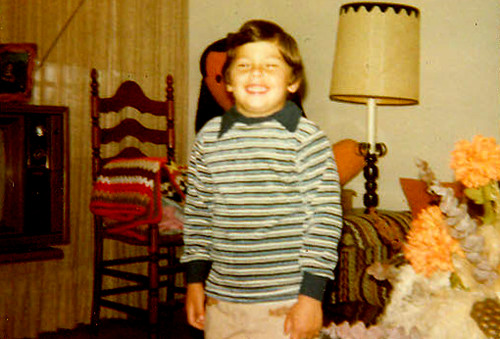
What did he mean?
I thought The Kinks were '50s music back then, but later on I understood his rant because The Kinks started punk. Long Beach was interesting back then. There was always something psychedelic happening. I'd walk up the block to the corner store in the summer, and these two whacked-out hippie chicks would take nude pics with a Polaroid and throw them out of their parked car. I didn't know what it was at first. It was some chick with her tits out [laughs]. I just threw the pic on the floor and kept walking. On my way back from the store, my drug of choice was grape-flavored Marino's Italian Ice, but that's probably just a New York thing. Anyway, I'm walking back and the same two girls are in the car smoking pot. I could see them throw out pics. If I was 9, they were 16, 17. It was a weird scene. One looked like a cheap version of Monica Bellucci, and the other one looked like Morgan Fairchild, kinda. It's weird what your brain remembers. It's weird to think MF Doom was blocks away from me in Long Beach, also getting into bizarre hijinks.
SEE ALSO: Punks on Film
I remember hanging out with Doom at the Non Phixion studio back in the late '90s. Did you know him when you were kids?
I didn't know him then, no. Back then, it was rare if you met anyone that was cool and into metal, or whatever. My mom and I had bad luck with landlords. I remember we had a landlord whose family back then was connected and my mom knew them, but he was a junkie and used to come by the house at all hours of the night, high on drugs, breaking windows, looking for rent. He was delusional. We had a few bad incidents with him. I snapped out one night and he suddenly stopped bothering us. Hopefully he ended up chopped up somewhere. I might do a film documenting my horror with landlords.
But there was also some cool stuff happening there, right?
For me, the best part of Long Beach was that Joan Jett lived there at the time. I wanted to be involved with her world somehow. I had her two solo albums. I didn't give a shit about The Runaways then. I used to see her and wave like a creep [laughs]. Yeah, I was a geek loser.
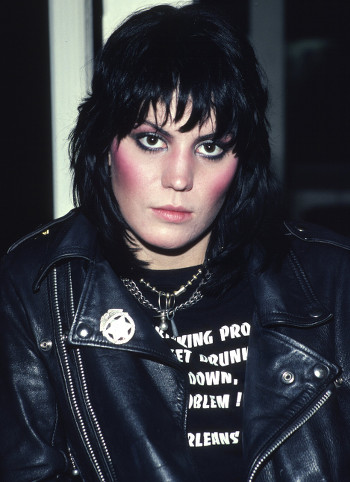
Why did you move to Brooklyn?
All of my mom's friends moved to Brooklyn, so we followed them. The big difference was that they were rich and we were poor. There were many miserable people where we moved to in Brooklyn. It was overcrowded and kids were assholes back then. If you didn't have brand new Pumas with fat laces, you were a subhuman mongrel. This was before I moved to Glenwood Projects. I eventually met some dirtbags and started jamming out. We were called either Warlock or Dark Warlock, it was hazy. We were mostly playing bad attempts at Manowar and Judas Priest. We had this singer, Phil, who actually wore corpsepaint. It was horrific [laughs]. He had kind of an afro, so he looked like a cross between [Welcome Back, Kotter character] Juan Epstein and Jairo T. from Sepultura. I heard years later that Phil went in the woods somewhere and shot himself. He was an odd kid then. He was the cat who turned me on to Mercyful Fate and Venom. It was a bit too neanderthal for me on first listen. Phil was a super goon.
SEE ALSO: '80s TV Theme Songs: The Stories Behind the Music
Since you're a fellow pop culture junkie, I have to ask you about television and the impact it had on you.
I think for most of us back then, television was like a heavy narcotic. The Sid and Marty Krofft shows were always trippy. I was aware of heavy funk at a young age, and all the shows had real heavy breaks and eerie looped segments that drew me in. I'd watch Barnaby Jones for basslines and grooves. I realized the later I stayed up, the better the theme songs got. Fish also had a heavy theme song.
What were some of your favorite shows?
Diff'rent Strokes was high on my list. I still watch Three's Company every day, literally. Knight Rider was sweet for a few seasons. The Wonder Years was good. I also liked the cheap stuff. Square Pegs was cool, but it didn't last too long. I wonder if anyone remembers John Stamos' show, Dreams. It aired for one season in 1982. WKRP in Cincinnati was heavy, if only for Loni Anderson [laughs]. Fantasy Island had some occult darkness in it once in a while. Not much in life has set me off more than the CHiPS theme song, with its Moog breakdown at the end. It still feels electrifying when I hear it.
How about music? Your love for KISS has been documented, but what other kinds of music did you listen to when you were really young? How about disco?
KISS were movie heroes and gods to me, but I knew then they weren't maybe doing what Blondie was doing. When I was a kid, that seemed more mature and hip. If I was going to listen to any coke-infused disco, it would be Blondie or Abba first. I loved KISS, but after '78, they weren't that hip anymore and people were let down by their disco direction. Look, I still liked them. Plenty of thugs still listened to KISS as well, even though they try to deny it now. Back then there was a huge division between rock and disco, and every two blocks was a "Disco Sucks" tag somewhere in Brooklyn.
SEE ALSO: 10 Swedish '80s Metal Bands You Should be Discovering Right Now
How did you get exposed to "real" metal?
I started having to go to camp during the summer and met this kid named Anthony. He had long hair, an earring, a Venom shirt, and Pumas with the black stripe on. He'd bring a boombox on the camp bus and we'd jam out. The Number of the Beast was biblical then. When I listen to it now, it's great, but there was something special about it when it first dropped. It was out-of-body experience kinda shit. I wanted to write a book on Maiden, but it never happened.
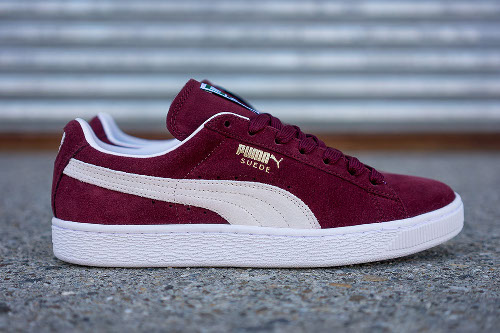
How about other musical mentors?
My cousin was a DJ from Long Beach, from my father's side of the family. He had all the records back then: Cold Crush, Jimmy Spicer, Funky Four, Sugar Hill, etc. He taught me how to do fat laces. Before that, I'd always have regular shoestring laces in my Pumas. I was told I looked like a serial killer with them that tight [laughs]. When he would split, I'd fuck with his records. He also let me hold the Bo Derek issue of [Playboy]. My friend Anthony played me Manowar when they were a new band. "Battle Hymns" is still one of my all-time top songs. Anthony had an older brother who had a lot of hardcore records. Punk was cool then, but I wanted to be K.K. Downing [laughs].
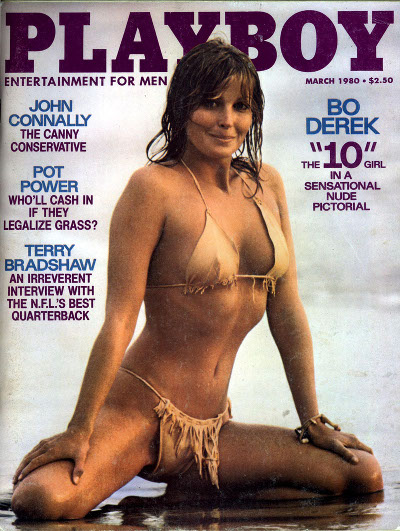
Do you remember the first time you heard hip-hop music? Why do you think it resonated with you?
The first time I heard hip-hop was probably on a bus. A lot of people carried radios then. It's weird to think people don't really do that anymore. I'm pretty sure it was a Sugar Hill record of some kind. Graffiti also killed me back then. The baddest shit I've ever seen in my life was this hippie chick with a huge floppy beach hat. Her face and most of her body was hidden. Anyway, she looked around and pulled out a huge marker and started tagging on the window. It was fucking crippling to me. I was electrified and started writing on everything. When the girl got up, I leaned over fast, and it said "Sugar Hill Rocks," with the sickest hand style. It was total brutality.
What were some of the early rap records that had a huge impact on you?
I liked a lot of the hot shit, like Jimmy Spicer's "Adventures of Super Rhyme (Rap)." I also listened to stuff like The Treacherous Three, Crash Crew, and The Sequence, a lot of classics, for sure. It seemed normal and natural for me to come up with flows. It was very "Rapper's Delight" kinda stuff, "One for the trouble, two for the..." You know, just simple, fun stuff. I sucked, but it felt great. I've always been intrigued with African music, going back to funk and the weird '70s prog they used to play on PBS. I've always read as many books as I could about music.
Yeah, PBS aired some really interesting music-related stuff back in the late '70s and early '80s.
Yeah, you would see 10 dudes with dashikis and afros jamming out real heavy shit similar to Stark Reality. Before metal, that kind of music was my primary influence. When I moved to the projects, it was all about Rakim. Of course Kool G Rap and Big Daddy Kane were also big influences, but Rakim is still it for me. Follow the Leader is the best rap album ever made.
SEE ALSO: 2016 interview with Art Liboon (Mordred).
Back then it was all about listening to Chuck Chillout, and other local radio shows in NYC, and taping stuff onto cassettes. I also remember Carlos DeJesus and the local music video show he did, New York Hot Tracks.
It's funny you mention Chuck Chillout. In 1993 we were working with him for a couple months. It was me and Bill and we were gonna do a 12" on Phat Wax Records. Anyway, he gassed us up and took us to Popeye's for two wings and a biscuit. I should've known I'd be doomed then [laughs]. I used to intern at Sleeping Bag Records and I met some cool people. I used to intern for Virgil Simms. I'd ask for studio time, but he never took me seriously.
What's also interesting is that rap was also a bit more experimental in a sense.
Ultramagnetic MCs' "Ego Trippin'" changed my life, because that was the first time I heard the "Synthetic Substitution" break used. Kool Keith's cadences also influenced me to think outside the box. Another life-changing moment came when I met Rakim at [Brooklyn shopping mall] Kings Plaza. I thought I was hallucinating [laughs]. I told him I rhymed and that he was God. Eric B. was a dickhead and completely ignored me. He basically told me to die [laughs].
Let's get into the metal side of your story. How important were local record stores like Zig Zag Records in Midwood, Brooklyn? I had a spot called Numbers in Jackson Heights, Queens, and I found so many great imports there as a teen.
Record stores like Zig Zag on Ave U in Brooklyn were very important to my life and growing stages of understanding various musical angles. I used to get my allowance and go there to buy the new issue of Kerrang! and chill for hours. Zig Zag also had a lot of cool in-stores there as well. I missed Venom, Iron Maiden, and Motörhead record signings because I was too young, but I did get to see Anthrax, Nuclear Assault, Carnivore, S.O.D., and Whiplash. They had an asshole who worked there who looked like a steroid-swollen, bald version of Garfield [laughs]. He hated kids. It didn't matter if you knew your shit. He was a miserable shitbag. He would embarrass you if you knew too much. He would try to find a loophole to make you look dumb in front of people. One day, I'm in there and there are a lot of hot girls there and he had to be a dick to me in front of them. I was like 9 or 10, and he was 30, 35. Slipped Disc out on Long Island was also amazing, but I had no way to get out there. I did get to go once and bought Autopsy's Severed Survival and something from Sadus.
Since you lived closer to the Brooklyn L'Amour than I did, I know you got to see a ton of killer local bills. Name some of the local metal and hardcore bands that you loved from the late '80s.
I lived kinda close to L'Amour. We used to take two buses to get to the club, but it was very worth it. I was also heavily involved in the early death metal and grindcore scene. I'd write letters to every band from Metal Forces and Kerrang! that was brutal. I started trading tapes with people all over the world. I had all of the early demos, cassettes, and rare VHS bootlegs from those scenes. I started taking the zine more seriously and started hooking up interviews and talking to labels like Roadrunner and Noise. I'd get a demo, read the phone number on the back, and then call it. It didn't matter who it was. From doing that, this cat named Alexis Olson hooked me up with a lot of bands like Testament, Piranha, and Forbidden.
One Saturday morning, I called [future Non Phixion member] Bill and told him to get dressed, but he had no idea where we were going. I had hooked up an interview with Mille Petrozza from Kreator and was going to have a sit down with him before their show. It was surreal. When I walked into Noise Records' offices, they were like, "That's you?" They were amused. I had an electric typewriter and used a Xerox. We were going to L'Amour every weekend and I'd somehow sneak backstage and chill with bands. I remember Destruction's Schmier tried to get me drunk. I wanted Gatorade but he called me a pussy [laughs]. It never went to print, but my zine had interviews with Vio-lence, Forbidden, Kreator, Immolation, Prime Evil, Kinetic Dissent, Nuclear Assault, Prong, Forced Entry, Piranha, Obituary, and Atheist. I'd do phone interviews at the crib and stalk people like Dan Lilker. I would call Chris Reifert from Autopsy and get some good gore flicks from him. As much as Rakim was an influence, so was Chris Reifert.
You mentioned Bill Braunstein, your future group mate in Non Phixion. He and his brother, Ron Braunstein (Necro), both played in a technical thrash band called Injustice back in the day.
Yeah, Bill played bass back then, and together with [guitarist] Mike [Nabatov], who lived in the next building, they started Injustice. They kinda just started out playing S.O.D. covers for fun. As Bill got more into heavier and more technical stuff, it was incorporated a bit into the band. Being young with no money sucked. Mike needed proper equipment and distortion. At that point I didn't play. I knew they had potential, but they were very rough around the edges at first. They got some press in some zines, and they were featured in Metal Forces. What's interesting is Bill was always a good lyricist, even back then, just in a different way. When he started rhyming after that, he picked it up very quickly. Bill's brother joined afterwards.
When I moved to the projects, in June of '86, Bill was the third person I met there and we started chilling right away. Bill had a Ratt shirt on, so we started bullshitting about their latest album, Dancing Undercover, which he liked more than I did. The only other person into metal I knew was a kid named Stu and he had a disability. He was a nice kid, but one minute he'd be telling you about a Queensrÿche album, and the next minute he would be trying to choke you.
Injustice eventually opened for Sepultura and Obituary at L'Amour, which was huge back then. I was grounded because my mom got a $400 phone bill from me doing the zine. Bill and Mike chilled with Max and Igor after Sepultura's set. Max didn't really know how to speak English yet and wanted to go eat cheeseburgers somewhere. Bill took him and Igor. Injustice also opened for Napalm Death at a cheap Russian strip club. I thought at some point they should change their name and start something new, more brutal—perhaps like Death, or maybe Entombed kinda stuff—but they sort of lost interest. Towards the end, the newer riffs that were being tossed around were almost like Biohazard in its simplicity, not that that's not heavy, but they could have been doing what bands like Atheist, Morbid Angel, and Pestilence started doing.
How did Non Phixion come to be, and was MC Serch always meant to be a full-time member when it started?
Serch was an original member of the group, and it was his idea to put all of us together. He had Sabac in mind. Bill Joined those guys and I was last to join. We grinded a lot. We were at all the parties back then. I remember going to the Fugees album release party on the Intrepid in the city. I met Wyclef, but meeting Nas high on E was surreal [laughs].
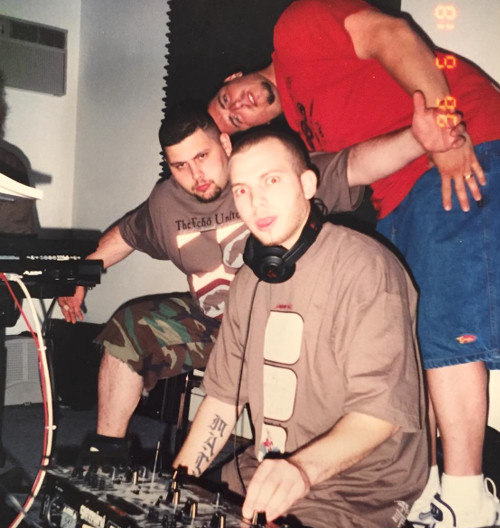
I remember there being a lot of record label interest in the group from the very beginning, but you had some issues locking a deal down.
To Serch's credit, he asked us what label we wanted to go after for a deal. After a while, we asked, "What about Geffen?" Three weeks later he said he had a deal on the table. We signed, even though it wasn't directly to Geffen, which was kind of a bummer, but we had $350,000 to make an album. We were gassed! Little did we know, once we started having meetings with our A&R [Wendy Goldstein]—who, by the way, signed Grim Reaper in 1985 [laughs]—that things would get weird. Some very strange shit went down with Serch, which led to having everything crumble away with Geffen. The label was also going through a merger with MCA, and acts would either slide over to MCA or get dropped. We didn't get dropped per say, but no one looked out for us at that point. Serch did let us build our own studio, which was cool. Other shit was transpiring that was unacceptable, and Bill and l made a very mature "big boy" decision to go over his head and go to Geffen ourselves. We heard Killah Priest was forced to re-record his album by Geffen. He played me a different version of Heavy Mental that is fucking bananas. We knew Geffen were being weird, but we all had bills and were starving. We needed more money and Serch was refusing to do anything. My kids were fucking young and that's unacceptable. We had almost had $400,000 to work with. It ended very badly.
You also had interest from Warner Bros. Records around that time.
Warner Bros. got glitched by a bad meeting, but not by us. We were very close. Around that time, Linkin Park stole a concept from one of our demos floating around the Warner Bros. offices. It was their song "Papercut." That whole "I'm paranoid" part on the hook is directly from us. They told the staff they loved us. Who cares.
SEE ALSO: 2016 interview with Troy Dixler (Sindrome).
Despite all that, it seemed like Serch was really cool the times I hung out with him and you guys at the studio.
I still love 3rd Bass. When he used to pick me up, I used to secretly throw in The Cactus Album and torture him with it [laughs]. I tried to really connect with Serch when he was in the group, but he was usually distant. The group was let down because we could have blown up a lot more had certain things not happened due to greed. It was like at first his heart was in it 100%, then he dropped the ball and started not caring about his role in the group. Later on he would say things like, "Yeah, I got those guys a lab and all they wanted to do was smoke weed," which was a weird quote. Look, we understood he had a lot of things going on. He might not be fond of me for some reason, but he knows I respect 3rd Bass and his contribution to hip-hop.
At one point the group signed with Matador Records, a label known for releasing seminal indie rock records, but not rap music. Do you regret doing that deal?
Actually, I think we might have made a mistake leaving Matador. They were great guys who had some great ideas. I was honored to work with them since they weren't like the usual industry scum. Their past is legendary. I think we should have stayed put and dropped the album on Matador. The label we did release The Future is Now album on, Landspeed Records, was a cesspool.
2002 also saw the release of your debut solo single, "Hated." That was the only release to ever come out on Imperial Recordings, a label I started with my friend, Omer Gungor.
"Hated" was an idea I had sort of after being made to watch some GG Allin horror fest on acid back then. The verses were very spontaneous. Overthinking things suffocates things sometimes. I did the beat on the B-side, "New America." I think it was a Jefferson Airplane sample. I get asked all the time about the 12", so I think it's a collector's item.
You released your first solo album, The Art of Dying, in 2004. Your second solo studio album, Electric Lucifer, came out in 2013. That record found you working with an array of underground producers. Tell me about the making of that album. I know it took years to finally complete.
Electric Lucifer took a while to make because all sorts of Murphy's Law kind of stuff would happen. Things like lost sound files and other kinds of shit like that. I didn't want to just do 12 tracks because I felt that would be cheating my fans. 76 minutes is a bit too long, but it's really like two albums. It'll take some time to digest everything. Some people wanted to act like the album didn't exist. A lot of haters slept on it, but they should all die slowly.
What are your thoughts on social media? Do you think some of the mystique musicians used to have when we were both kids is lost because of outlets like Facebook and Instagram?
Social media is a big fucking joke. It's sickening to see people being controlled by it. I have to have it, but it's really depressing in a way. We gave up so easy to technology it's repugnant. I use it as a mockery. I'm posting stuff like Three's Company pics. I'm a realist in that my shit will never blow up, there is no huge major label deal happening. I care to reach my diehards, that's it. When you've been through it, you learn. I'm humble as fuck. I have nothing to rest on, and in some ways I'm just beginning. Too many rappers are very bitter and miserable, you can see it. No one is happy for any success you have and that's okay, too. That guy at your show five years ago who was a big fan and had you sign four different pieces of merchandise is now a hater [laughs]. It's so bizarre that I should write a book on it. Hip-hop is the only scene where most artists hate each other. I've been good to people and got shitted on, so...
SEE ALSO: The Graffiti and Hardcore Connection
Of all the lyrics you've written, what are some of the lines people have recited back to you when they meet you?
When I meet fans, it's not so much lyrics they recite as offering up off-the-wall comments like: "I heard you were dead," or that I was in jail [laughs]. I don't need the spotlight, nor have I ever craved it. When I was 19, sure, I wanted to blow up. We would go to all these parties with famous douchebag actors asking for drugs in the bathroom. We had a lot of fun back then, and were part of a lot of interesting events in a short period of time. There was lots of traveling and that was the best part of it. We got to see the world three or four times. It helped me better understand the world. Often, knowledge is hidden in nooks and crannies all over the world. Sometimes you can learn more from fighting with customs in England, or getting arrested in Germany, than in a classroom. I'm stoked to have gone to Iceland.
Now that Non Phixion is back playing shows, what can we expect from you guys?
We have surprises in store. We love you. Hail Hashem.
***
Head to Gore's official Facebook page to keep up with both his solo and Non Phixion work.

